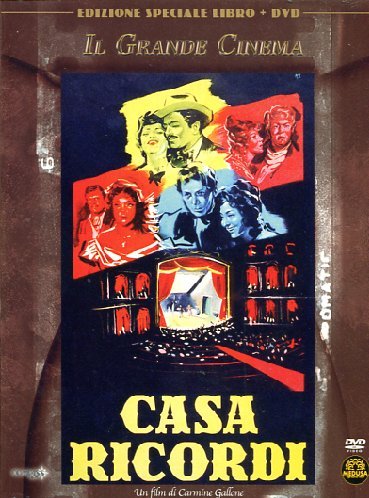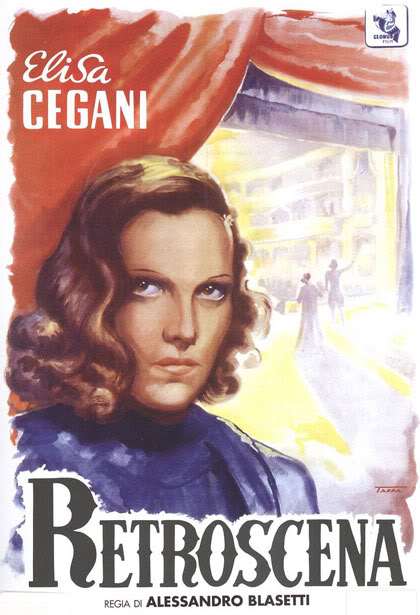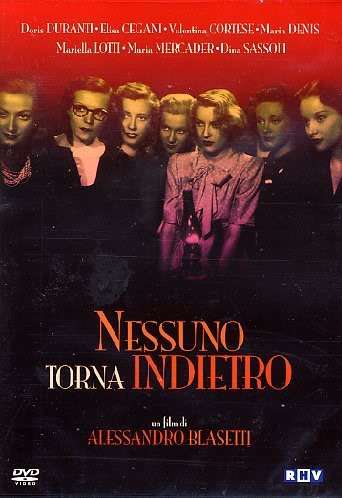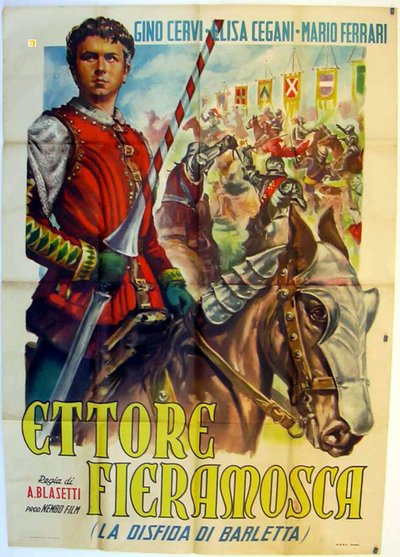Quote:
Made immediately following the end of the war, Blasetti’s Un giorno nella vita follows
the trend of many other Italian films from this moment in history, and investigates the
situation of Italian people locked in mortal conflicts on native soil. In this case, the setting is
a secluded Convent of Nuns, the inhabitants of which appear to have lived through the war
years relatively oblivious and unaffected by the events of the outside world. However, the
peace of the Convent is upset, when a group of Italian partisans led by Amedeo Nazzari
takes shelter on the grounds of the convent. The Germans are in close pursuit, and one of
the partisans is in dire need of medical attention. Elisa Cegani and Mariella Lotti are
featured in the cast of nuns, who decide to aid the wounded partisan, and slowly also come
to sympathize with the battle weary men.Read More »
Elisa Cegani
-
Alessandro Blasetti – Un giorno nella vita (1946)
Drama1941-1950Alessandro BlasettiItalian Neo-RealismItalyWar -
Carmine Gallone – Casa Ricordi (1954)
1951-1960Carmine GalloneClassicsDramaItaly
The film covers a hundred years in the lives of the Ricordi family, the Milan publishing house of the title, and the various composers and other historic personalities, whose careers intersected with the growth of the Ricordi house. It beautifully draws the parallel between the great music of the composers, the historic and social upheavals of their times, as well as the “smaller stories” of the successive generations of Ricordi.Read More »
-
Alessandro Blasetti – Ettore Fieramosca (1938)
1931-1940AdventureAlessandro BlasettiEpicItalyFreely excerpted from Wikipedia:
In 1503, the French and the Spanish fight over the region surrounding the Sicilian castle of Morreale. Giovanna, the beautiful castellan, yearns to free herself from the foreign yoke and for this she wants to marry a brave knight. Graiano d’Asti deceives her by letting Ettore Fieramosca fight in his place and then bragging with Giovanna about the feat, thus managing to convince her to marry him.Read More » -
Alessandro Blasetti – Retroscena (1939)
1931-1940Alessandro BlasettiClassicsDramaItalian Cinema under FascismItaly
Review (amazon.com)
Un celebre baritono incontra sul piroscafo che lo conduce dall’America in Italia, una non meno celebre pianista. Costei è ricchissima e superba. Il baritono se ne innamora ma soffre per l’alterigia di lei. Poiché la ragazza ha beffato alcuni cantanti che si sono esibiti durante un concerto a bordo, il baritono si rifiuta di cantare, ed anzi, se la ragazza non promette di starsene rinchiusa nel camerino della Scala, egli è deciso a non partecipare alle recite liriche per cui è stato scritturato a Milano. Per quanto altezzosa la ragazza, che ricambia segretamente i sentimenti dell’uomo, si reca durante il suo debutto nel camerino di lui. Intanto un famoso critico nega qualunque valore al nuovo cantante, anche perché è geloso dell’interessamento che la ricca ereditiera dimostra per lui. Il cantante, d’accordo con la direzione del teatro, si presenta in una nuova opera sotto il nome di un suo collega polacco, di cui il critico è entusiasta. Durante l’intervallo egli, alla presenza di tutti, svela la propria identità al critico stesso che aveva tessuto pubblicamente le lodi dell’interprete straniero. Dopo questa vittoria egli ha modo di conoscere i veri sentimenti della ragazza di cui è innamorato. I due concluderanno l’avventura con il matrimonio.Read More » -
Alessandro Blasetti – Nessuno torna indietro AKA Responsibility Comes Back (1945)
Drama1941-1950Alessandro BlasettiItalian Cinema under FascismItaly
Late fascist chickflick or early lib melo – hard to tell. Early production title was Vagine di ferro.Read More »


